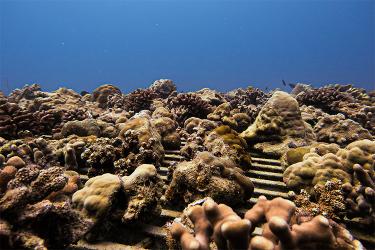A Changing Climate
Changing climate and oceans are affecting the nation’s valuable living marine resources and the many people, businesses and communities that depend on them. Warming oceans, loss of sea ice, rising seas, extreme events, and acidification are impacting the distribution and abundance of species and the structure of marine and coastal ecosystems in many regions. These impacts are expected to increase and there is much at risk.
Priority Actions - Headquarters Offices
The Headquarters Action Plan identifies key goals and actions by NOAA Fisheries Headquarters Offices to implement the NOAA Fisheries Climate Science Strategy (NCSS) through 2024. The goals and actions support nationwide and regional efforts identified in Regional Action Plans (RAPs).
The following is a summary of current or planned actions organized under the objectives of the NOAA Fisheries Climate Science Strategy.
Build and Maintain Infrastructure and Track Change (NCSS Objectives 6, 7)
- Maintain a nationally coordinated network of regional climate teams to provide cross-agency coordination, support and execution of climate-related activities within and across regions.
- Monitor and track climate-related changes in the distribution, abundance, and productivity of key marine species and their habitats.
- Expand ecosystem indicator systems in all regions to track, communicate, and provide early warning of climate-related changes.
- Provide a modern data acquisition and management system to support the agency’s requirements for easy discovery, access, and use of information on changing ecosystems.
- Expand engagement with international partners to increase the capacity to understand and track climate-related changes in marine and coastal ecosystems.
Understand Mechanisms and Project Future Conditions (NCSS Objectives 4, 5)
- Conduct climate vulnerability assessments of living marine resources, habitats and resource-dependent communities for use in decision-making.
- Better understand the response of ecosystems, living marine resources, and socio-economic systems to changing climate and ocean conditions.
- Provide robust forecasts and projections of future ocean, resource and ecosystem conditions to support risk assessments and evaluation of effective management strategies for changing conditions.
Inform Management (NCSS Objectives 1-3)
- Increase the use of scenario planning to describe multiple plausible future scenarios and identify strategies to prepare for and respond to climate-driven changes.
- Assess risks and evaluate effective management strategies for current and future conditions.
- Provide ideas and options for management approaches that are flexible and robust to changing conditions.
- Increase capacity to integrate climate change into management decisions.
- Increase consideration of ecosystem, environmental, and socioeconomic drivers in the stock assessment and management process.
- Develop information and tools to support fishing community adaptation planning in the face of changing climate and ocean conditions.
CONTACTS:
Roger Griffis (roger.b.griffis@noaa.gov)
Jay Peterson (jay.peterson@noaa.gov)



